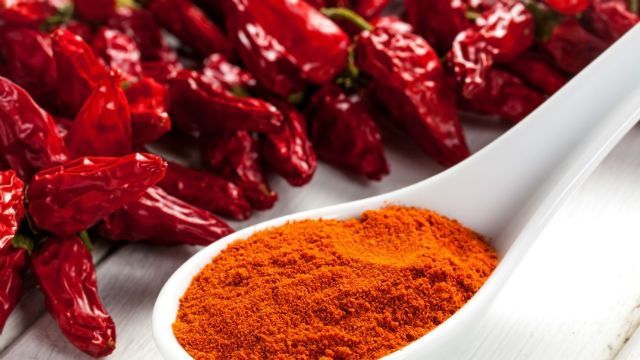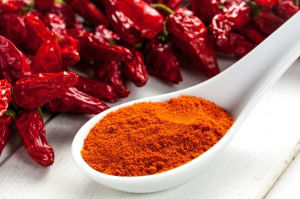
If you can’t get enough of the spicy kick of chili peppers, jalapenos and cayenne, then we have good news for you.
While hot peppers have previously been found to contain a wealth of health benefits, new research adds one more potential perk to the list: a lower risk of colorectal cancer.
The active ingredient in spicy peppers – responsible for the heat factor – is capsaicin. A new study performed at the University of California, San Diego School of Medicine found that the intake of capsaicin activated a receptor known as TRPV1 on the intestinal cells of mice, which was linked to protection from the development of colorectal tumors. This sensor functions to detect both spice and acidity.
The absence of the TRPV1 receptor was connected to a higher risk of intestinal tumors in mouse studies. In contrast, stimulating the receptor is linked to blocking the growth of these types of tumors. According to Petrus de Jong, the study’s first author, “these results showed us that epithelial TRPV1 normally works as a tumor suppressor in the intestines.”
When the researchers fed capsaicin to mice that were prone to the development of multiple gastrointestinal tumors, they found that the mice developed fewer tumors. They also found that the lifespan of these mice increased by over 30 percent.
Senior author Eyal Raz states, “a direct association between TRPV1 function and human colorectal cancer should be addressed in future clinical studies.” While more research needs to be done, if this connection is further established, capsaicin may very well become both a preventative measure, and possibly even a treatment, for this condition.
Spicy peppers may also help to prevent multiple cancers – as well as other chronic conditions – from developing thanks to their flavonoid and carotenoid antioxidant content. These antioxidants fight free radicals in the body, and also function to reduce system-wide inflammation. The anti-inflammatory properties of capsaicin are well-known, and this compound has been found to be effective in soothing multiple forms of pain.
Dr. Ashwin Mehta of the University of Miami Miller School of Medicine states, “it’s used for all kinds of arthritis pain, as well as for neuropathic pain and dermatologic conditions that have a painful itch.” Topical ointments for inflammatory pain often contain capsaicin as an ingredient.
 On top of that, chili peppers and other hot peppers are sometimes used for aphrodisiac purposes, as the capsaicin triggers an endorphin rush and also improves blood flow throughout the body. In addition, this multifaceted compound may help to speed up metabolism, and can be a great compliment to a healthy diet and exercise plan if you are trying to lose weight.
On top of that, chili peppers and other hot peppers are sometimes used for aphrodisiac purposes, as the capsaicin triggers an endorphin rush and also improves blood flow throughout the body. In addition, this multifaceted compound may help to speed up metabolism, and can be a great compliment to a healthy diet and exercise plan if you are trying to lose weight.
There are so many reasons to incorporate hot peppers into your diet – research has likely only scratched the surface when it comes to the world of benefits capsaicin has to offer.
-The Alternative Daily
Sources:
http://health.ucsd.edu/news/releases/Pages/2014-08-01-capsaicin-and-gut-tumors.aspx
http://www.thealternativedaily.com/fiery-hot-peppers-may-reduce-pain-increase-pleasure

